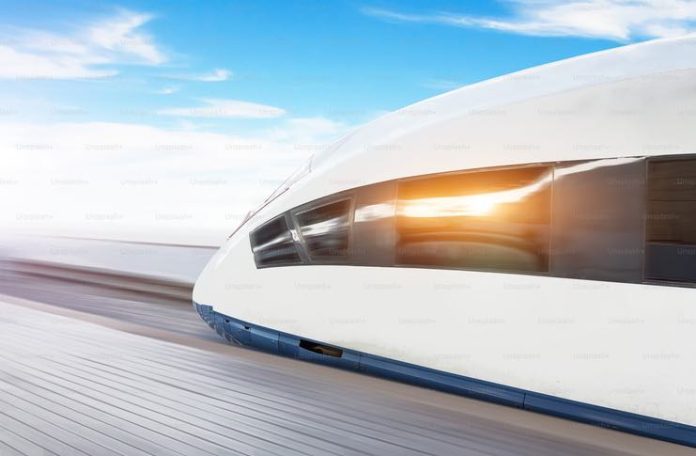
Thirteen years on the road teach you a thing or two—like how a “shortcut” can add three hours to your trip or how some airport security lines move slower than a snail on vacation. But the most fascinating part? Watching technology change the way we move. The Future of Travel isn’t some distant dream; it’s happening now. From AI-driven traffic systems to the best fleet tracking GPS, transportation is getting smarter, safer, and more efficient. In this post, as part of our travel blog, let’s dive into what’s shaping the road ahead.
AI-Powered Traffic Systems: The Gridlock Busters
There was a time when beating traffic meant leaving before sunrise and hoping for the best. Now, cities are turning to AI-powered traffic systems to reduce congestion and improve safety. Los Angeles, for instance, uses an adaptive traffic control system that adjusts light timing based on real-time data. It’s like having a brain behind the wheel of city infrastructure.
The upside? Fewer accidents, less road rage, and a reduction in emissions as cars spend less time idling. The downside? If you enjoy staring at your GPS while crawling at five miles per hour, these systems might ruin your fun.
Watch this video to get a glimpse:
Self-Driving and Electric Vehicles: Science Fiction Meets Reality
I used to joke that by the time self-driving cars arrived, I’d be too old to care. Turns out, I was wrong. Companies like Tesla and Waymo are making significant strides in autonomy. While these cars aren’t perfect—just ask the pedestrian crossings they occasionally misinterpret—the potential for reducing human error is enormous.
Electric vehicles (EVs) are also gaining traction, with range anxiety slowly becoming a thing of the past. The infrastructure for EVs is expanding, and with government incentives pushing adoption, we’re seeing a shift toward cleaner transportation. The downside? Charging stations still aren’t as common as gas stations, so road trips require a bit more planning.
Watch this CNN piece on the subject:
The Role of Fleet Tracking GPS in Smarter Travel
Remember those horror stories about delivery trucks taking detours through residential areas, turning quiet streets into makeshift highways? That’s where the best fleet tracking GPS systems come in. Companies like Samsara and Geotab offer GPS solutions that monitor vehicle location, optimize routes, and even track driver behavior.
For businesses, it means saving on fuel costs and improving delivery times. For everyday drivers, it means fewer trucks clogging up side streets. But it’s not all sunshine and perfectly optimized roadways—privacy concerns remain a big issue. Employees aren’t thrilled about being monitored every second, and small businesses often struggle with the cost of implementation.
Watch this video to learn more:
High-Speed Rail and the Hyperloop: The Need for Speed
America’s love affair with cars is undeniable, but what if trains could make them obsolete for long distances? Countries like Japan have bullet trains that put domestic flights to shame. Meanwhile, Elon Musk’s Hyperloop concept is pushing the boundaries of what’s possible, promising speeds of up to 760 mph.
The potential benefits are huge—less congestion, lower carbon footprints, and fewer flight delays. The problem? Infrastructure costs. The U.S. has been talking about high-speed rail for years, but progress remains painfully slow. Turns out, building futuristic tunnels isn’t as easy as pitching the idea on Twitter.
Watch this video from Business Insider to learn more about the Hyperloop:
Smart Public Transportation and Mobility-as-a-Service
Public transit is getting a tech upgrade. Cities are rolling out real-time tracking apps, contactless payments, and Mobility-as-a-Service (MaaS) platforms that integrate buses, trains, rideshares, and bike rentals into a single app.
For travelers, this means fewer missed connections and no more scrambling for loose change. The challenge? Adoption. Not everyone is ready to ditch their car for an app-based transit experience, especially in cities where public transport isn’t as reliable as it should be.
The Road Ahead
Technology is reshaping the way we travel, making transportation faster, safer, and (hopefully) less stressful. But with every innovation comes a learning curve. AI might make traffic flow smoother, but what happens when it glitches? Self-driving cars are promising, but are we ready to fully trust them? Fleet tracking GPS is optimizing routes, but at what privacy cost?
One thing is certain—The Future of Travel isn’t slowing down. Whether by road, rail, or air, the journey is evolving, and as someone who’s spent over a decade chasing the next destination, I can’t wait to see what’s next.









